Publications
Articles, publications, books, tools and multimedia features from the U.S. Institute of Peace provide the latest news, analysis, research findings, practitioner guides and reports, all related to the conflict zones and issues that are at the center of the Institute’s work to prevent and reduce violent conflict.
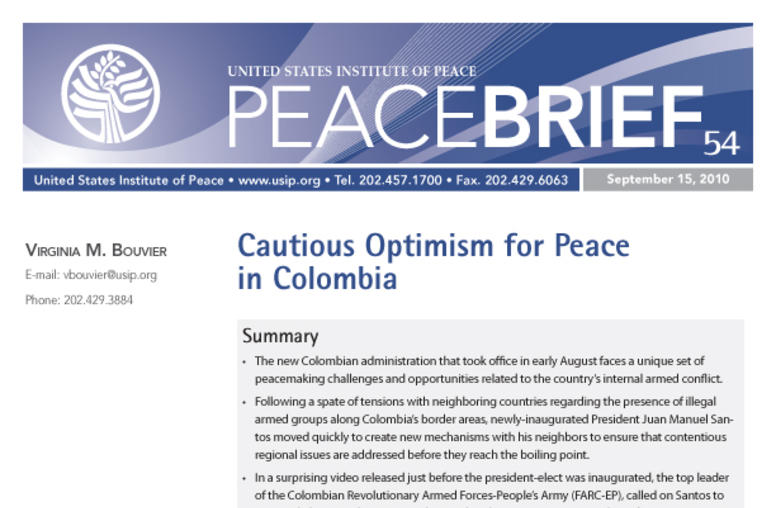
Cautious Optimism for Peace in Colombia
On August 7, 2010, Juan Manuel Santos, a defense minister under the outgoing administration of President Alvaro Uribe, was inaugurated as Colombia’s new president. Peace issues were largely absent from public debate during the presidential campaign, but unexpectedly surfaced in the final weeks of President Uribe’s incumbency.
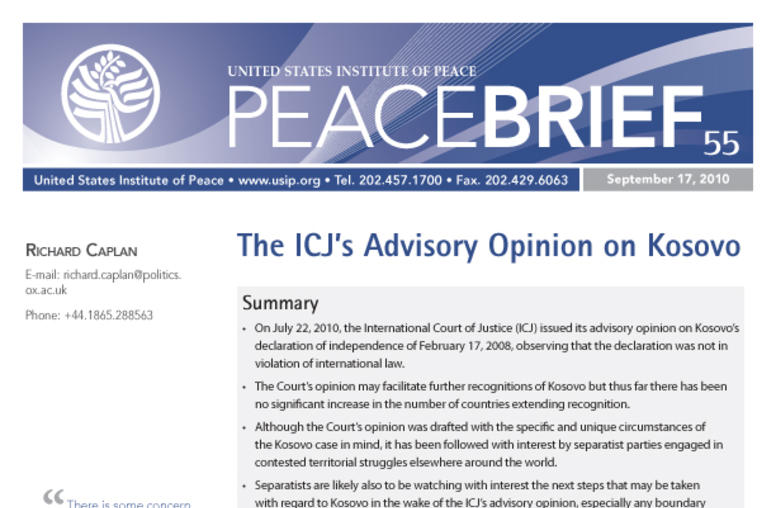
The ICJ’s Advisory Opinion on Kosovo
On July 22, 2010, the International Court of Justice (ICJ) issued its long-awaited advisory opinion on the legality of Kosovo’s declaration of independence of February 17, 2008. The expectation had been that the ICJ would offer a mixed ruling that would give some comfort to Serbia and some support to Kosovo. Instead, by a majority of 10 to four, the ICJ concluded that “the adoption of [the] declaration did not violate any applicable rule of international law.” While the advisory opinion will ...
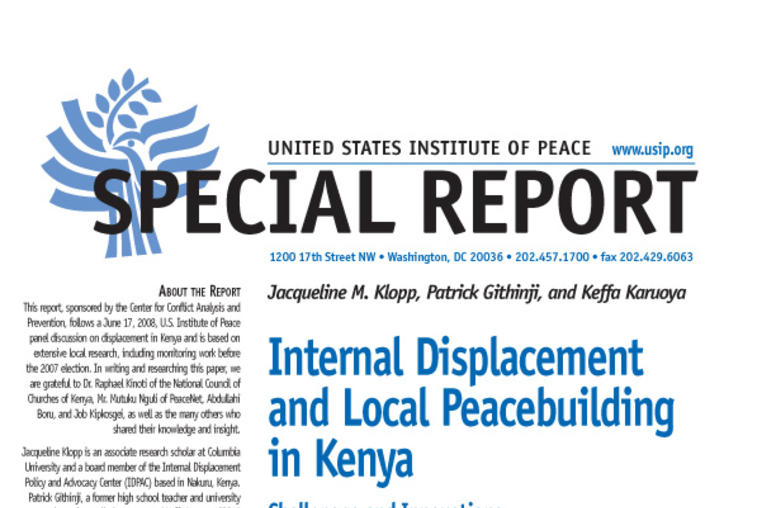
Internal Displacement and Local Peacebuilding in Kenya
Since the election in December 2007, Kenya has witnessed an unprecedented degree of postelection violence that has produced large numbers of victims, including hundreds of thousands of internally displaced persons (IDPs). This persistent insecurity linked to mobilized youth, local impunity, and the failure of the police and legal system makes resettlement and reintegration of the displaced dangerous.
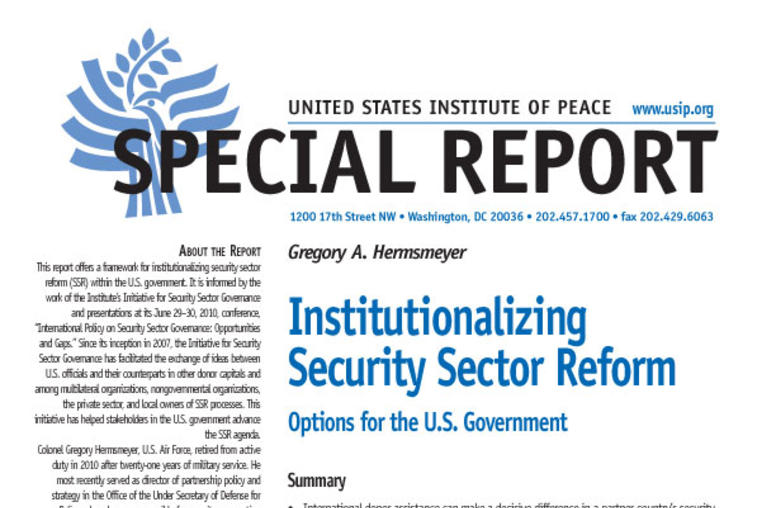
Institutionalizing Security Sector Reform
This report offers a framework for institutionalizing security sector reform (SSR) within the U.S. government. It is informed by the work of the Institute’s Initiative for Security Sector Governance and presentations at its June 29–30, 2010, conference, “International Policy on Security Sector Governance: Opportunities and Gaps.”
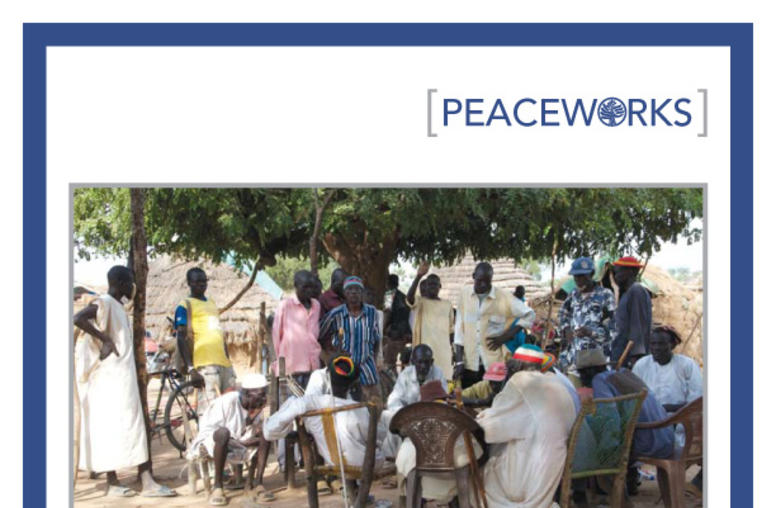
Local Justice in Southern Sudan
This study is the result of collaboration between the United States Institute of Peace and the Rift Valley Institute (RVI), leveraging the former’s broader work on customary justice and legal pluralism and the latter’s extensive knowledge of the region. This report empirically analyzes the current dynamics of justice at the local level, identifying priorities for reform according to the expressed needs and perceptions of local litigants.
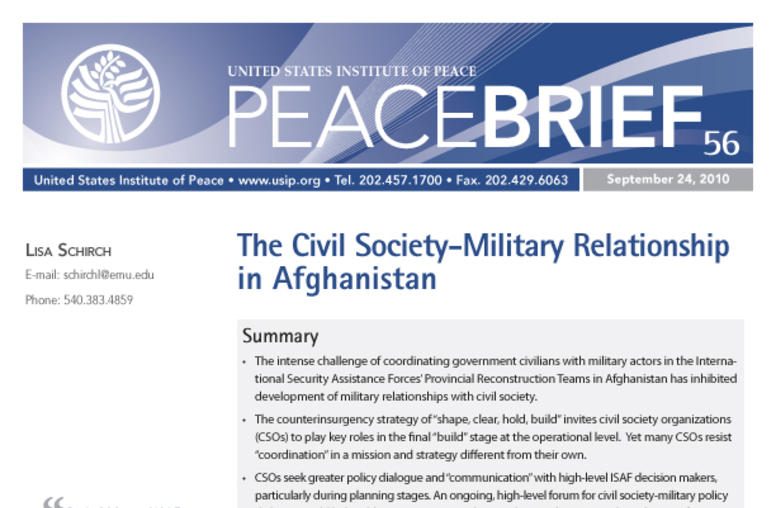
The Civil Society-Military Relationship in Afghanistan
This brief is a report on a one-day civil-military roundtable to identify tensions, tradeoffs and opportunities found in the civil society–military relationship in Afghanistan.
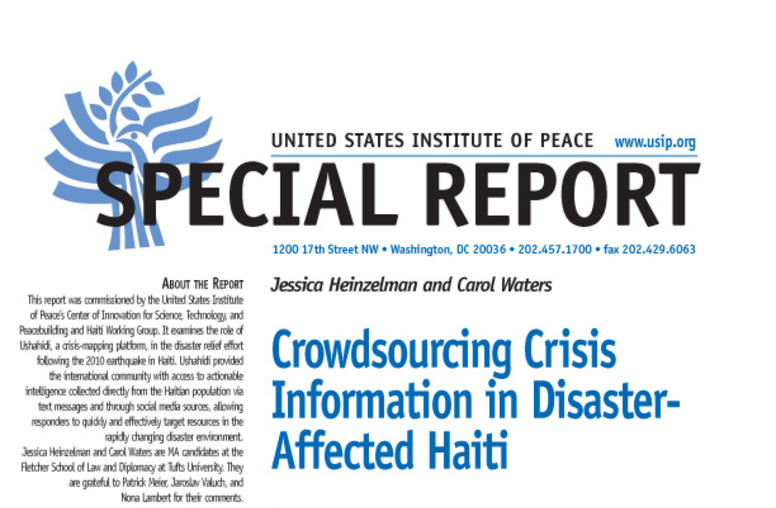
Crowdsourcing Crisis Information in Disaster- Affected Haiti
This report was commissioned by the United States Institute of Peace’s Center of Innovation for Science, Technology, and Peacebuilding and Haiti Working Group. It examines the role of Ushahidi, a crisis-mapping platform, in the disaster relief effort following the 2010 earthquake in Haiti.
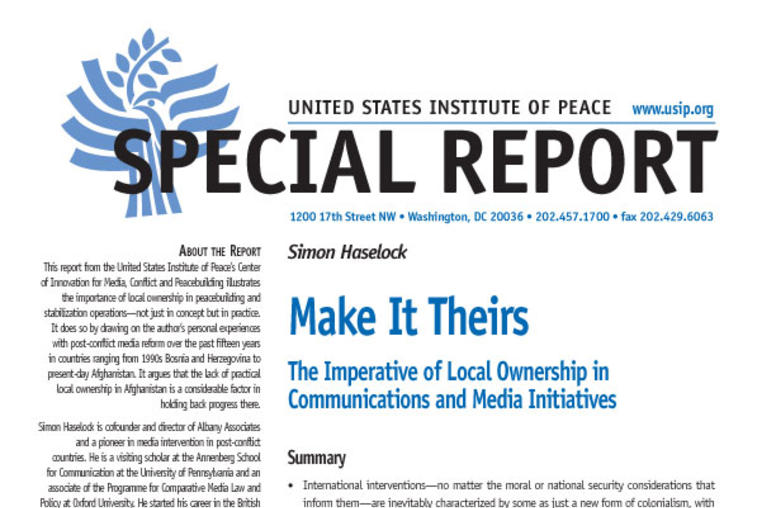
Make It Theirs
This report from the United States Institute of Peace’s Center of Innovation for Media, Conflict and Peacebuilding illustrates the importance of local ownership in peacebuilding and stabilization operations—not just in concept but in practice.
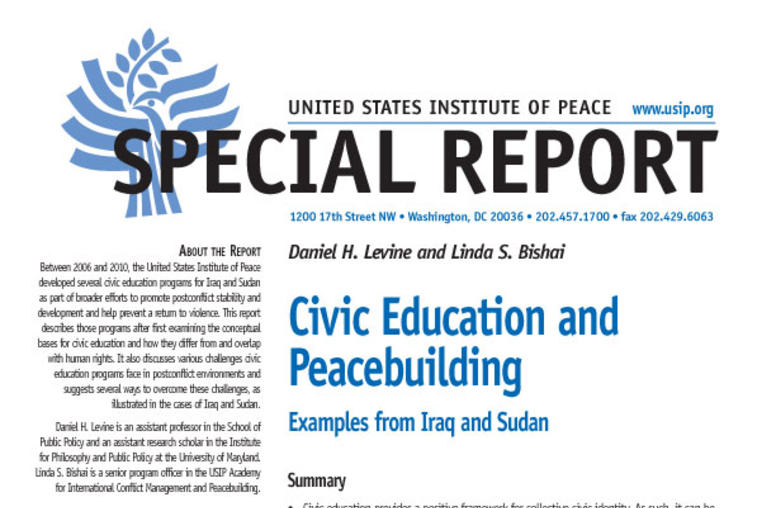
Civic Education and Peacebuilding
Between 2006 and 2010, the United States Institute of Peace developed several civic education programs for Iraq and Sudan as part of broader efforts to promote postconflict stability and development and help prevent a return to violence. This report describes those programs after first examining the conceptual bases for civic education and how they differ from and overlap with human rights.
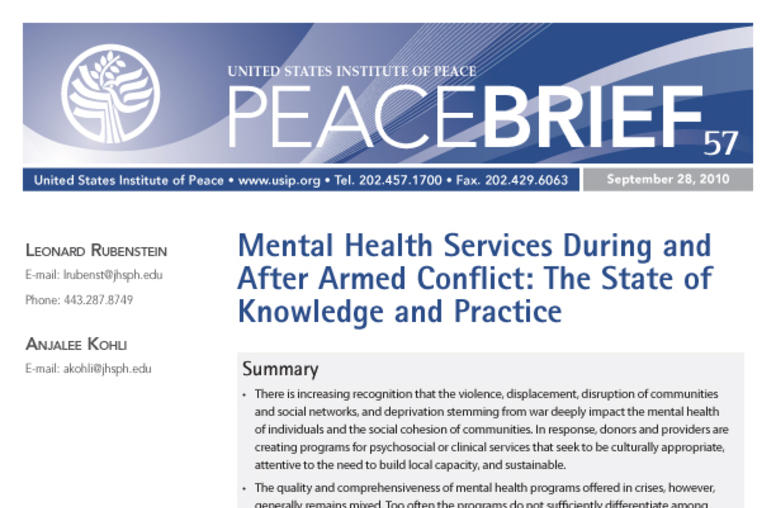
Mental Health Services During and After Armed Conflict: The State of Knowledge and Practice
The need for mental health services as part of emergency and long-term health development responses in regions of armed conflict is widely recognized. To date, responses have too often been fragmented, lack comprehensiveness, and based on assumptions rather than on evidence of effectiveness. This Peace Brief reviews the challenges and how Inter-Agency Standing Committee guidelines can point a way forward.